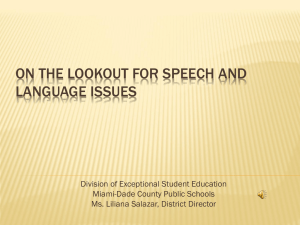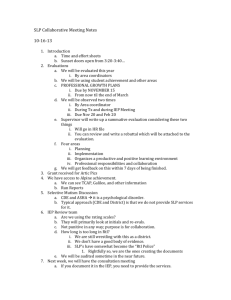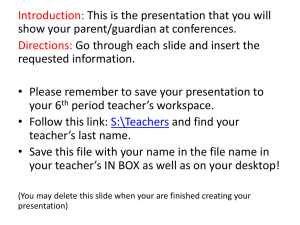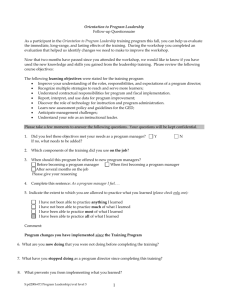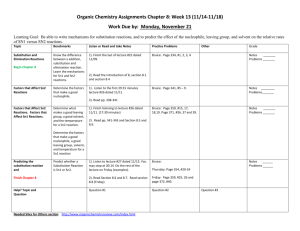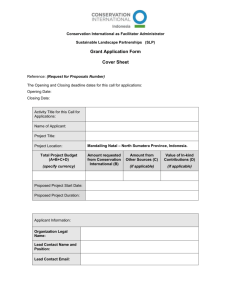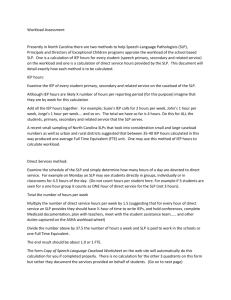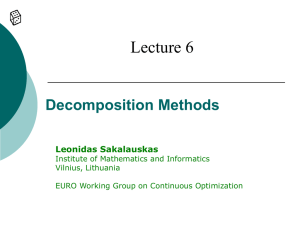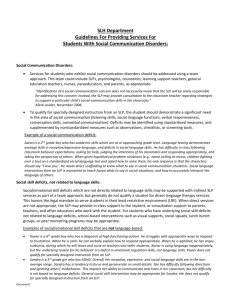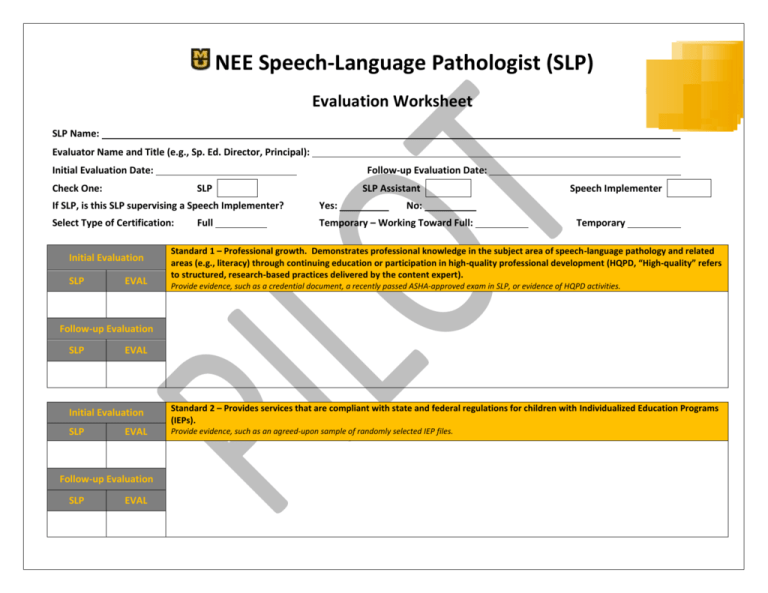
NEE Speech-Language Pathologist (SLP)
Evaluation Worksheet
SLP Name:
Evaluator Name and Title (e.g., Sp. Ed. Director, Principal):
Initial Evaluation Date:
Follow-up Evaluation Date:
Check One:
SLP
SLP Assistant
If SLP, is this SLP supervising a Speech Implementer?
Yes:
Select Type of Certification:
Temporary – Working Toward Full:
Initial Evaluation
SLP
EVAL
Full
Speech Implementer
No:
Temporary
Standard 1 – Professional growth. Demonstrates professional knowledge in the subject area of speech-language pathology and related
areas (e.g., literacy) through continuing education or participation in high-quality professional development (HQPD, “High-quality” refers
to structured, research-based practices delivered by the content expert).
Provide evidence, such as a credential document, a recently passed ASHA-approved exam in SLP, or evidence of HQPD activities.
Follow-up Evaluation
SLP
EVAL
Initial Evaluation
Standard 2 – Provides services that are compliant with state and federal regulations for children with Individualized Education Programs
(IEPs).
SLP
Provide evidence, such as an agreed-upon sample of randomly selected IEP files.
EVAL
Follow-up Evaluation
SLP
EVAL
Initial Evaluation
SLP
Standard 3 – Conducts comprehensive evaluations for students who may be experiencing a variety of communication disorders.
Provide evidence, such as an agreed-upon sample of randomly selected IEP files.
EVAL
Follow-up Evaluation
SLP
EVAL
Initial Evaluation
SLP
EVAL
Standard 4 – Provides appropriate and educationally relevant services reflecting evidenced-based practices.
Provide evidence, such as a copy of a schedule showing appropriate variation in frequency and location of speech-language support services based on a
student’s individual needs or an agreed-upon sample of randomly selected IEPs that shows varied service delivery, frequency, and location.
Follow-up Evaluation
SLP
EVAL
Initial Evaluation
SLP
EVAL
Follow-up Evaluation
SLP
EVAL
Standard 5 – Demonstrates collaboration with the school community (classroom teachers and other professionals).
Provide evidence of linkage between therapy and classroom objectives or work on goals and activities in the classroom (i.e., outside the “speech room”),
such as a therapy schedule that shows classroom-based services, RTI activities done with classroom teachers, logs showing consultation with the classroom
teacher, collaboration regarding literacy achievement, help with curriculum planning, service on school committees, and sharing of IEP goals and progress
with teachers.
Initial Evaluation
SLP
EVAL
Standard 6 – Demonstrates collaboration with families.
Provide evidence that parents are involved in services (e.g., asking parents for input on IEPs, scheduling parent meetings, sending materials to families about
ways to practice SLP goals in the home, using parent communication logs or parent checklist, or other indicators).
Follow-up Evaluation
SLP
EVAL
Initial Evaluation
SLP
EVAL
Standard 7 – Contributes to various building or district initiatives.
Provide evidence, such as district committees served on, examples of RTI activities, presentations made to staff and/or parents, list of resources and
materials provided to staff, participating in a PLC team, covering student supervision while others participate in collaborative activities, etc.
Follow-up Evaluation
SLP
EVAL
Initial Evaluation
SLP
EVAL
Follow-up Evaluation
SLP
EVAL
Standard 8 – Contributes to student learning.
Provide evidence of student learning (e.g., quarterly probes, benchmark data, student performance samples, etc.).
Initial (Beginning of Year) Evaluation
Follow-up (End of Year) Evaluation
Date:
Date:
SLP Signature:
SLP Signature:
Evaluator Signature:
Evaluator Signature:
Additional Comments if Needed:
NOTE: Two additional standards are scored in observations of SLPs. See accompanying scoring guide to score.
Developed using standards from the Performance Assessment of Contributions and Effectiveness of Speech-Language Pathologists (PACE), which was produced by the American
Speech-Language-Hearing Association’s (ASHA) Value-Added Project Team in response to member requests and rapidly developing state-level policies regarding accountability
measures for school-based speech-language pathologist (SLPs).
© Copyright 2014 by the Curators of the University of Missouri. All rights reserved. No part of this work may be reproduced or transmitted by any means.

